Introduction to Bail:
Bail, or judicial interim release, is the process of releasing an accused person before their trial or resolution of charges. The rules and procedures for bail are outlined in the Criminal Code, influenced by common law and the Canadian Charter of Rights and Freedoms.
Bail Hearing Process:
When arrested for a criminal offence, the accused must be brought before a justice of the peace within 24 hours. A bail hearing is conducted either over the phone or in court. The justice determines whether the accused will be granted bail or held in custody.
Possible Outcomes of a Bail Hearing:
- Undertaking to attend court without conditions
- Undertaking to attend court with specific conditions
- Recognizance with conditions, possibly requiring cash deposit or sureties
- Bail denied, leading to the accused remaining in custody
Grounds for Bail Denial:
Bail can be denied based on:
- Primary Grounds: Ensuring the accused’s court attendance, considering community ties and prior convictions for non-attendance.
- Secondary Grounds: Ensuring public safety, assessing the likelihood of further criminal activity or interference with justice based on criminal record.
- Tertiary Grounds: Maintaining confidence in justice administration, evaluating case strength, offence gravity, and potential sentence length.
Imposing Conditions:
Conditions may be imposed to address concerns about the accused’s release, such as geographical restrictions, curfews, or non-communication orders. Justices have discretion but must be reasonable.
Changing Bail Conditions:
Conditions can be changed with consent from the Crown Prosecutor or through a bail review in Court King’s Bench, where arguments are presented for or against altering conditions.
Recognizance: A Legal Promise
A recognizance is a promise to pay the Crown if the accused breaches bail conditions. It can be cash-based or without a deposit, depending on the case’s circumstances.
Role of a Surety:
A surety supervises the accused, ensuring court attendance and compliance with conditions. They can be a close adult, but certain individuals, like accomplices or those with criminal records, are usually not allowed.
Withdrawing as a Surety:
A surety can withdraw in writing, leading to the accused’s arrest, or by bringing the accused to court. Substituting another surety follows a similar procedure.
Surety’s Financial Obligation:
A surety enters a debt with the Crown through a recognizance, indicating their commitment. A cash deposit may be required, refundable upon successful completion of the accused’s legal matters.
